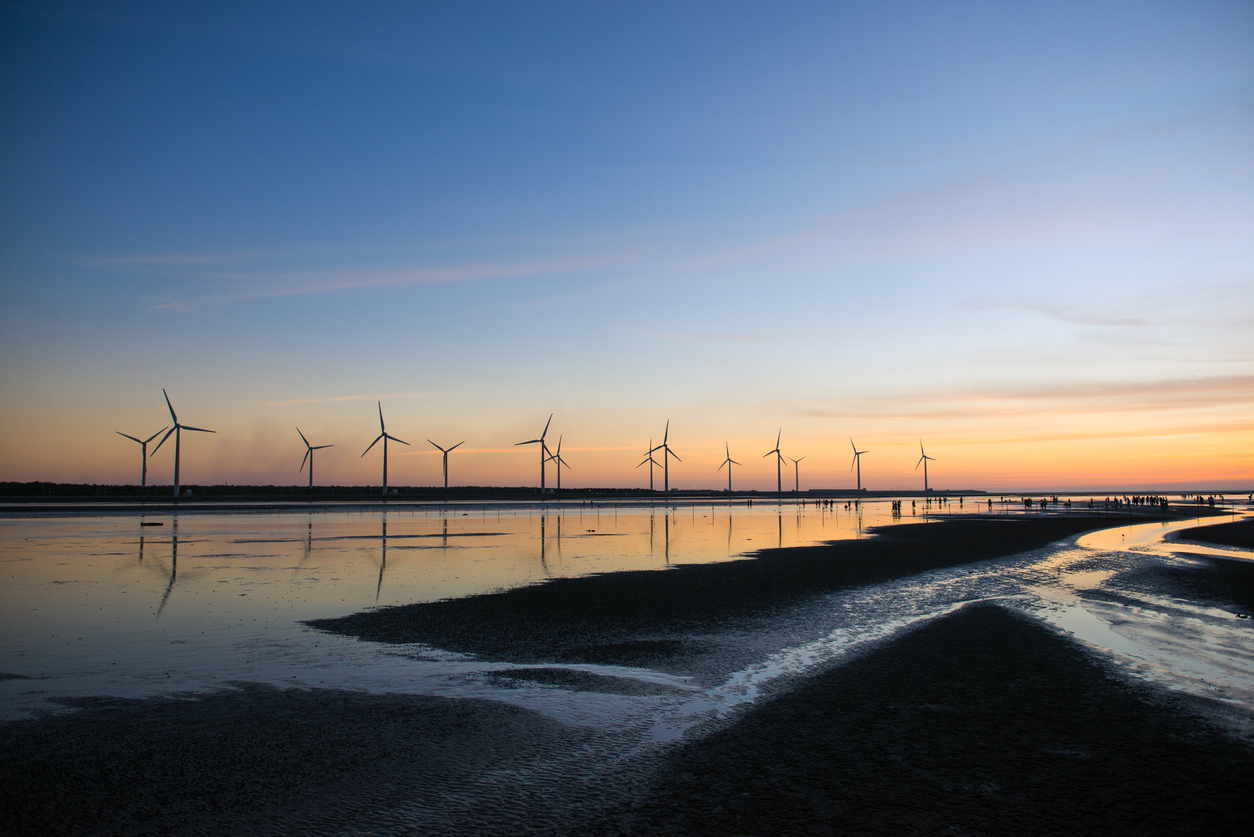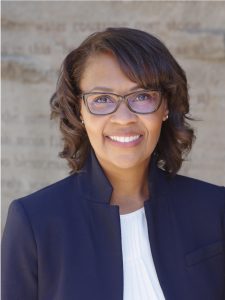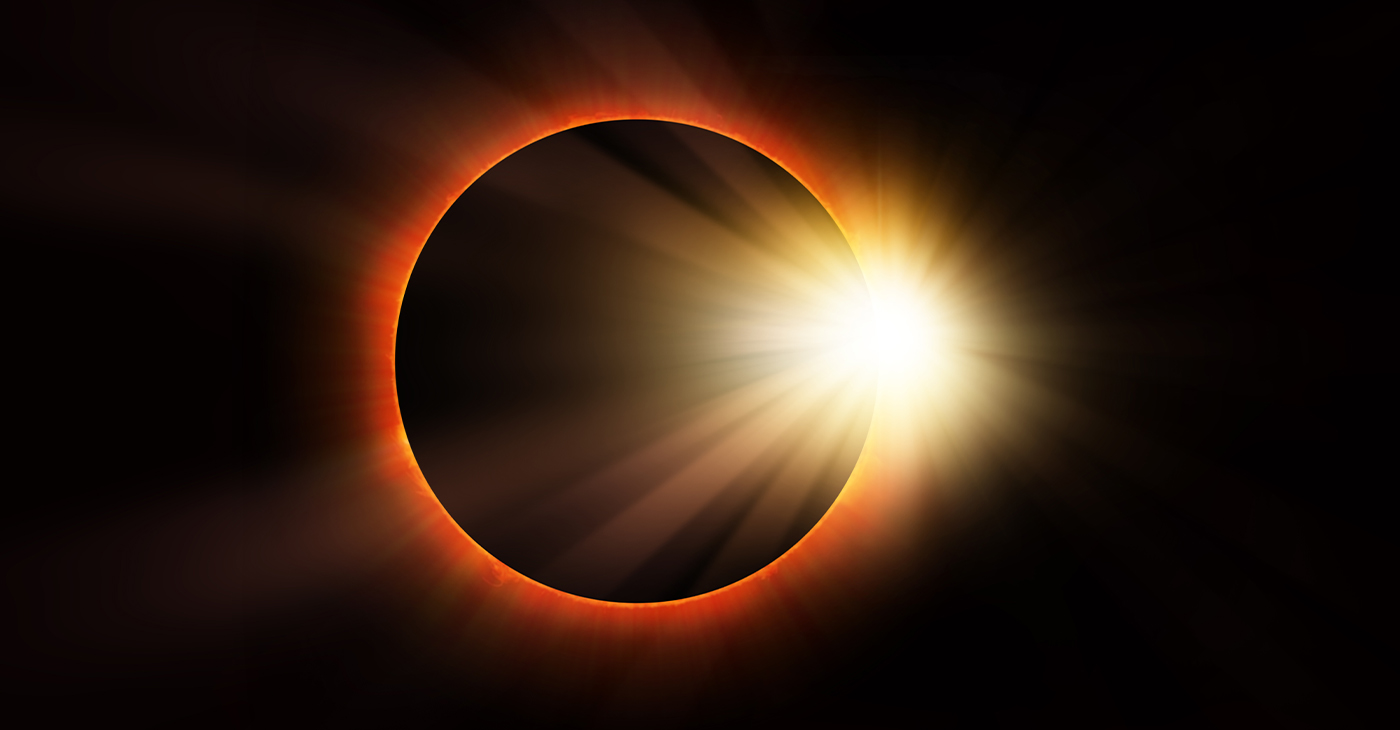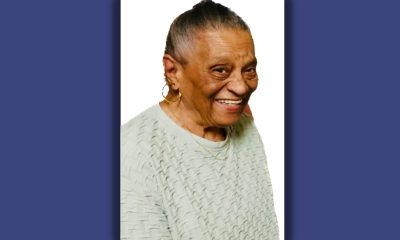Commentary
COMMENTARY: Together, We Can Save Our Water and Our Future
As Californians, we’re no strangers to the drought, but as we anticipate another dry year, it’s more important than ever for all of us to take action to save our water for today and years to come.

For some reason, the day we learned about the water cycle in science class stayed with me. Then, many years later, when deciding on a career I knew that I wanted to help bring clean water to homes that currently didn’t have access to safe and reliable drinking water and to protect the environment for future generations.
Now that I serve on the board of the state agency that is responsible for protecting and managing California’s water resources, my view of what it means to ensure people have access to water has expanded, especially as we grapple with another drought.

Board Member Nichole Morgan of the California Water Resources Control. Photo courtesy of Lagrant Communications.
California is only getting hotter and drier. We’re seeing it all over the news as the water crisis hits closer and closer to home. Karla Nemeth, director of the state Department of Water Resources, put our harsh reality into perspective when she said, “the challenge is there is no water.”
As Californians, we’re no strangers to the drought, but as we anticipate another dry year, it’s more important than ever for all of us to take action to save our water for today and years to come.
It is imperative for us to understand that the drought truly impacts everyone. From our state’s ecosystems to its economy, we all rely on an ample water supply; without it, we all suffer.
Climate change is ultimately driving these threats to California, including the dire drought conditions, low reservoir levels and parched landscapes seen throughout the West.
Unfortunately, we can already see some of the consequences of the overuse of water. California’s fish and wildlife are facing severe challenges, threatening the survival of species, including our iconic Chinook salmon.
The drought also affects businesses across California, especially small business, like family-owned restaurants and hotels. Many business owners are already struggling to reconcile dried out wells and limited water supply, in addition to still recovering from the COVID-19 pandemic.
Water is essential not only to keep our economy healthy, but to keep our communities thriving with business that foundation to many of our communities.
Now is the time to strengthen conservation efforts and make active changes to save water. We know that it can be hard to change our habits when it comes to conserving water, but the smallest changes really can make a difference. If we all make little changes in our daily routine to save water, it adds up. Below are some simple steps we can all follow to conserve water both indoors and out.
Inside the Home:
- Wash your produce in the container instead of under running water.
- Only use your dishwasher and washing machine for full loads.
- Install low-flow shower heads as well as taking shorter showers. Showers under 5 minutes can save about 15 gallons, saving you money and the planet!
- Turn the water off when brushing your teeth and soaping your hands.
- Install a high-efficiency (HET) 1.28 gallons-per flush toilet. Check with your water supplier for current rebate information.
Outside the Home:
- Water your yard in the morning or evening when temperatures are cooler.
- Check your sprinkler system and adjust them so that only your lawn is watered and not the house, sidewalk or street to eliminate any wasteful runoff.
- Plant drought-resistant trees and plants! There are so many options to create a beautiful landscape that conserves water – succulents and California poppies are great options.
- Use a broom to clean driveways, sidewalks, patios and walkways instead of hosing them down.
- If you have a pool, install a pool cover to reduce evaporation and filter backwash. And, if draining your pool is necessary, make sure to find a use for that water.
We know it won’t be easy, but it’s up to us to make the necessary changes to conserve the water that we need. Let’s make sure our kids and future generations get to enjoy the California that we know and love. Together, we can make our water last. Visit www.saveourwater.com to learn more about what you can do to help.
Commentary
Opinion: Surviving the Earthquake, an Eclipse and “Emil Amok.”
Last Friday, a 4.8 magnitude earthquake shook New York City, reported as the “biggest earthquake with an epicenter in the NYC area since 1884” when a 5.2 quake hit. A bit bigger. The last quake similar to Friday’s was a 4.9 in 1783.Alexander Hamilton felt it — 241 years ago. That’s why New Yorkers were freaking out on Friday. They were in the room where it happens.

By Emil Guillermo
I’m a Northern Californian in New York City for the next few weeks, doing my one-man show, “Emil Amok, Lost NPR Host, Wiley Filipino, Vegan Transdad.”
I must like performing in the wake of Mother Nature.
Last Friday, a 4.8 magnitude earthquake shook New York City, reported as the “biggest earthquake with an epicenter in the NYC area since 1884” when a 5.2 quake hit. A bit bigger. The last quake similar to Friday’s was a 4.9 in 1783.
Alexander Hamilton felt it — 241 years ago.
That’s why New Yorkers were freaking out on Friday. They were in the room where it happens.
And it just doesn’t happen that often.
Beyonce singing country music happens more frequently.
When I felt New York shake last week, it reminded me of a time in a San Francisco TV newsroom when editors fretted about a lack of news an hour before showtime.
Then the office carpeting moved for a good ten seconds, and the news gods gave us our lead story.
On Friday when it happened in NYC, I noticed the lines in the carpeting in my room wiggling. But I thought it was from a raucous hotel worker vacuuming nearby.
I didn’t even think earthquake. In New York?
I just went about my business as if nothing had happened. After living near fault lines all my life, I was taking things for granted.
Considering the age of structures in New York, I should have been even more concerned about falling objects inside (shelves, stuff on walls) and outside buildings (signs, scaffolding), fire hazards from possible gas leaks, and then I should have looked for others on my floor and in the hotel lobby to confirm or aid or tell stories.
Of course, as a Californian who has lived through and covered quakes in the 4 to 6 magnitude range, I tried to calm down any traumatized New Yorker I encountered by taking full responsibility for bringing in the quake from the Bay Area.
I reassured them things would be all right, and then let them know that 4.8s are nothing.
And then I invited them to my consoling post-Earthquake performance of “Emil Amok, Lost NPR Host…”
It was the night of the eclipse.
ECLIPSING THE ECLIPSE
In New York City, the eclipse was about 90 percent visible. Good enough for me. Though a full solar eclipse is a celestial rarity, blockages of any sort aren’t generally celebrated. My one-man play is about growing up with the eclipsed history of American Filipinos and how I struggle to unblock all that.
For example, did you know the first Filipinos actually arrived to what is now California in 1587? That’s 33 years before the Pilgrims arrived in America on the other coast, but few know the Filipino history which has been totally eclipsed.
I was in Battery Park sitting on a bench and there was a sense of community as people all came to look up. A young woman sitting next to me had a filter for a cell phone camera. We began talking and she let me use it. That filter enabled me to take a picture of the main event with my iPhone.
For helping me see, I invited her and her boyfriend to come see my show.
Coincidentally, she was from Plymouth, Massachusetts, near the rock that says the year the Pilgrims landed in 1620.
In my show she learned the truth. The Pilgrims were second.
History unblocked. But it took a solar eclipse.
Next one in 2044? We have a lot more unblocking to do.
If you’re in New York come see my show, Sat. April 13th, 5:20 pm Eastern; Fri. April 19, 8:10 pm Eastern; and Sun. April 21st 5:20 pm Eastern.
You can also livestream the show. Get tickets at www.amok.com/tickets
About the Author
Emil Guillermo is a journalist and commentator. He does a mini-talk show on YouTube.com/@emilamok1. He wishes all his readers a Happy Easter!
Commentary
Commentary: Republican Votes Are Threatening American Democracy
In many ways, it was great that the Iowa Caucuses were on the same day as Martin Luther King Jr. Day. We needed to know the blunt truth. The takeaway message after the Iowa Caucuses where Donald Trump finished more than 30 points in front of Florida Gov. De Santis and former South Carolina Governor Nikki Haley boils down to this: Our democracy is threatened, for real.

By Emil Guillermo
In many ways, it was great that the Iowa Caucuses were on the same day as Martin Luther King Jr. Day.
We needed to know the blunt truth.
The takeaway message after the Iowa Caucuses where Donald Trump finished more than 30 points in front of Florida Gov. De Santis and former South Carolina Governor Nikki Haley boils down to this: Our democracy is threatened, for real.
And to save it will require all hands on deck.
It was strange for Iowans to caucus on MLK day. It had a self-cancelling effect. The day that honored America’s civil rights and anti-discrimination hero was negated by evening.
That’s when one of the least diverse states in the nation let the world know that white Americans absolutely love Donald Trump. No ifs, ands or buts.
No man is above the law? To the majority of his supporters, it seems Trump is.
It’s an anti-democracy loyalty that has spread like a political virus.
No matter what he does, Trump’s their guy. Trump received 51% of caucus-goers votes to beat Florida Gov. Ron DeSantis, who garnered 21.2%, and former South Carolina Gov. Nikki Haley, who got 19.1%.
The Asian flash in the pan Vivek Ramaswamy finished way behind and dropped out. Perhaps to get in the VP line. Don’t count on it.
According to CNN’s entrance polls, when caucus-goers were asked if they were a part of the “MAGA movement,” nearly half — 46% — said yes. More revealing: “Do you think Biden legitimately won in 2020?”
Only 29% said “yes.”
That means an overwhelming 66% said “no,” thus showing the deep roots in Iowa of the “Big Lie,” the belief in a falsehood that Trump was a victim of election theft.
Even more revealing and posing a direct threat to our democracy was the question of whether Trump was fit for the presidency, even if convicted of a crime.
Sixty-five percent said “yes.”
Who says that about anyone of color indicted on 91 criminal felony counts?
Would a BIPOC executive found liable for business fraud in civil court be given a pass?
How about a BIPOC person found liable for sexual assault?
Iowans have debased the phrase, “no man is above the law.” It’s a mindset that would vote in an American dictatorship.
Compare Iowa with voters in Asia last weekend. Taiwan rejected threats from authoritarian Beijing and elected pro-democracy Taiwanese vice president Lai Ching-te as its new president.
Meanwhile, in our country, which supposedly knows a thing or two about democracy, the Iowa caucuses show how Americans feel about authoritarianism.
Some Americans actually like it even more than the Constitution allows.
About the Author
Emil Guillermo is a journalist and commentator. He does a mini-talk show on YouTube.com/@emilamok1.
Activism
Oakland Post: Week of April 10 – 16, 2024
The printed Weekly Edition of the Oakland Post: Week of April 10 – 16, 2024

To enlarge your view of this issue, use the slider, magnifying glass icon or full page icon in the lower right corner of the browser window. ![]()
-

 Activism4 weeks ago
Activism4 weeks agoOakland Post: Week of March 20 – 26, 2024
-

 #NNPA BlackPress3 weeks ago
#NNPA BlackPress3 weeks agoCOMMENTARY: D.C. Crime Bill Fails to Address Root Causes of Violence and Incarceration
-

 #NNPA BlackPress3 weeks ago
#NNPA BlackPress3 weeks agoMayor, City Council President React to May 31 Closing of Birmingham-Southern College
-

 #NNPA BlackPress3 weeks ago
#NNPA BlackPress3 weeks agoFrom Raids to Revelations: The Dark Turn in Sean ‘Diddy’ Combs’ Saga
-

 #NNPA BlackPress3 weeks ago
#NNPA BlackPress3 weeks agoCOMMENTARY: Lady Day and The Lights!
-

 #NNPA BlackPress3 weeks ago
#NNPA BlackPress3 weeks agoBaltimore Key Bridge Catastrophe: A City’s Heartbreak and a Nation’s Alarm
-

 #NNPA BlackPress3 weeks ago
#NNPA BlackPress3 weeks agoBaltimore’s Key Bridge Struck by Ship, Collapses into Water
-

 Activism3 weeks ago
Activism3 weeks agoOakland Post: Week of March 27 – April 2, 2024













































